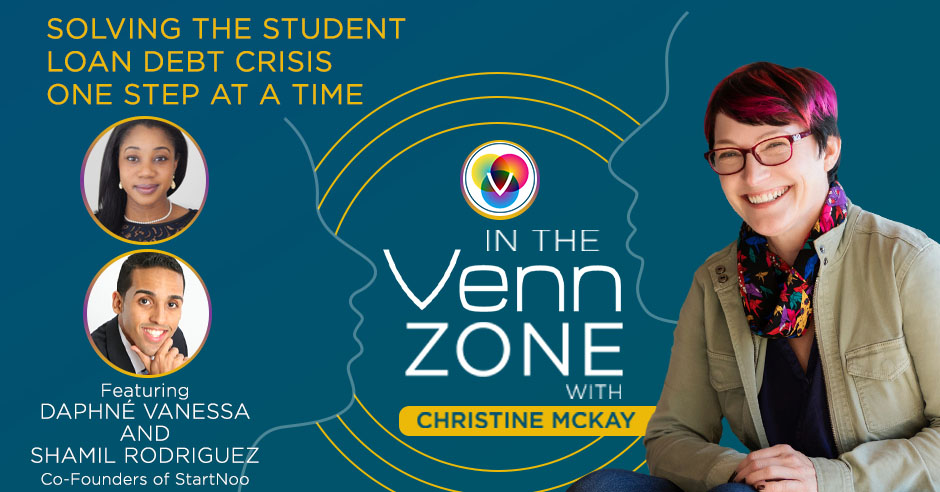Millennial Generation Student Loan Debt: Crisis Unpacked

Millennial Generation students grapple with significant loan debt. The average individual owes approximately $30,000.
The financial burden carried by many Millennials today largely stems from educational loans. A vast number of these younger adults, now in their 30s, embarked on their professional journey with a heavy financial handicap. The impact of this debt extends beyond just their bank accounts; it also influences their life choices, from career paths to homeownership.
Tackling student loan debt has become a central topic among this demographic, prompting a shift in socioeconomic discussions and policy debates. As such, understanding and addressing the challenges of student loan debt within the Millennial cohort is crucial for fostering economic stability and facilitating progress toward their long-term financial goals.

Credit: www.bloomberg.com
Millennial Burden: The Student Loan Debt Crisis
The dream of higher education has become a financial nightmare for many Millennials. With hopes of securing a bright future through degrees, the harsh reality of overwhelming student loan debt has cast a shadow over this generation’s financial independence and stability. It’s a crisis that impacts not just individual lives, but the broader economic landscape as well.
Soaring Higher Education Costs
Tuition fees have skyrocketed over the past few decades. This surge has left Millennials scrambling to cover steep expenses. Let’s delve into some startling numbers:
- Average tuition costs have risen sharply, often outpacing inflation.
- Many students find themselves forced to take out substantial loans to bridge the gap.
- Financial aid and scholarships are often not enough to cover all expenses.
The result is a generation burdened by loans well into their adulthood, delaying major life milestones like home ownership and retirement savings.
The Ripple Effect On The Economy
Student loan debt doesn’t just affect borrowers. It has a wider impact on economic health. High levels of debt among young adults mean:
| Impact | Details |
|---|---|
| Consumer Spending | Decreases as disposable income is channeled into repaying loans |
| Home Ownership Rates | Lowered as saving for a down payment becomes challenging |
| Business Creation | Stifled due to limited capital for entrepreneurial ventures |
These effects create a domino impact, slowing economic growth and innovation. The student loan debt crisis is not just a personal finance issue — it’s a national economic concern that calls for urgent attention and action.
Trapped In Debt: Millennials’ Financial Struggles
The Millennial generation faces a unique financial challenge unseen by previous generations. Burdened by the heavy weight of student loan debt, many find themselves in a seemingly endless cycle of repayment. This debt not only hampers their ability to save but also dictates the pace at which they can progress through life’s milestones.
Delaying Life Milestones
Caught in the financial web of student loans, Millennials are postponing crucial life events. Dreams of home ownership, starting a family, and investing in retirement are slipping away. Why is this happening? Skyrocketing education costs paired with subdued wage growth create the perfect storm, shackling an entire generation to their financial obligations and delaying the pursuit of traditional adulthood steps.
- Home ownership delayed: The down payment seems like an impossible feat.
- Marriage and family planning: Financial insecurities push these dreams to the backburner.
- Retirement savings: Left waiting as immediate debts take precedence.
Credit Scores And Purchasing Power Impacted
The ripple effect of student loan debt on credit scores is undeniable. Monthly loan payments leave little room for error, often leading to late or missed payments. Such financial missteps harm credit scores profoundly, resulting in the tightening of credit accessibility and higher interest rates on loans and credit cards. The millennial purchasing power dwindles as credit scores drop, strangling their financial freedom.
| Credit Score Impact | Effect on Millennials |
|---|---|
| Missed Loan Payments | Lower credit scores |
| High Debt-to-Income Ratio | Reduced loan eligibility |
| Increased Borrowing Costs | More expensive credit lines |
The Emotional Toll Of Mounting Debts
Imagine carrying a backpack filled with bricks, each brick representing a chunk of student loan debt. This weight is a daily reality for many millennials. It’s not just a financial burden. It impacts their emotions deeply.
Stress And Mental Health Concerns
The constant worry over money can trigger severe stress. Stress, in turn, often leads to mental health issues. Balancing jobs, life expenses, and loan payments becomes a tightrope walk. This pressure cooker of financial strain can lead to anxiety and depression. The numbers are telling. Many millennials report that loan debt is a significant source of mental health challenges.
- Insomnia: Worrying about debt can lead to sleepless nights.
- Isolation: Money concerns may cause individuals to withdraw socially.
- Anxiety: The uncertainty of relief adds to daily unease.
- Depression: Ongoing financial stress can fuel feelings of hopelessness.
Implications For Millennial Well-being
Millennial well-being extends beyond mental health. Excessive debt can reshape personal and professional choices.
| Area of Life | Impact of Debt |
|---|---|
| Family Planning | Millennials are delaying marriage and children due to debt. |
| Home Ownership | Buying a home seems out of reach when saddled with loans. |
| Career Choices | Chasing higher-paying jobs becomes necessary, often at the expense of passion-driven careers. |
| Retirement Savings | Long-term savings get sidelined to manage immediate debt repayment. |
Millennials are forging life paths in the shadow of student loan debt. This debt is not just a number. It’s a factor in daily decisions, from small purchases to life-changing commitments. Understanding these challenges is critical to supporting a generation striving for stability against the odds.

Credit: johnsoncenter.org
Fighting Back: Managing And Overcoming Loans
The millennial generation faces a mounting challenge: student loan debt. The struggle is real and the numbers are staggering. But there’s good news: Steps can be taken to manage and even overcome these debts. With smart strategies and helpful programs, millennials can fight back and chart a course to financial freedom.
Strategies For Debt Repayment
Facing student loan debt head-on requires a solid plan. Consider repayment strategies that suit your personal financial situation:
- Debt Snowball Method: Start with the smallest debt for quick wins.
- Debt Avalanche Method: Target debts with the highest interest rates first.
Creating a budget is also key. Keep track of your income and expenses. Look for ways to reduce costs. Even small savings can make a big difference over time.
| Strategy | Description | Benefit |
|---|---|---|
| Refinancing | Replace existing loans with new ones at lower rates | Saves on interest payments |
| Consolidation | Combine multiple loans into one | Simplifies repayment |
Programs And Policies For Relief
Relief programs offer a light at the end of the tunnel. Federal forgiveness programs can erase student loans for those who qualify. Income-driven repayment plans adjust monthly payments based on income and family size.
- Look into Public Service Loan Forgiveness if you work in public service.
- Consider Teacher Loan Forgiveness for educators in low-income schools.
- Research the Income-Based Repayment Plan for a manageable payment schedule.
Changes in policies can also bring new opportunities for loan management. Stay informed about new federal programs and legislative changes. Knowledge is power, and staying up-to-date can be incredibly beneficial.
Looking Ahead: Preventing A Future Crisis
The Millennial Generation faces a massive challenge: student loan debt. This burden has far-reaching effects on their financial stability. Yet, lessons learned pave the way for brighter futures. Actions taken today can prevent history from repeating tomorrow. It’s time to explore viable solutions.
Reform In Higher Education Financing
Changes in college funding could reduce future debts. On-the-dot reforms must simplify the loan process. Emphasis on grants over loans is vital. Investing in affordable education is key.
- Shift focus to grants and scholarships
- Incentivize lower-cost college options
- Capitalize on work-study programs
Increasing Financial Literacy Among Future Generations
Equipping young minds with financial know-how is crucial. Schools should teach money management early on. A clear grasp of budgeting, loans, and savings empowers students. This ensures informed decisions about their education funding.
- Integrate personal finance into school curriculums
- Host workshops on debt management
- Promote free online financial literacy resources

Credit: venn.zone
Frequently Asked Questions Of Millennial Generation Student Loan Debt
How Much Debt Do Millennials Have?
Millennials on average face significant financial burdens, with student loan debt often exceeding $30,000. This substantial figure reflects the rising costs of education and the importance of financial literacy for this generation.
Is Student Loan Debt Impacting Millennials’ Future?
Yes, millennial student loan debt can delay major life milestones. It affects their ability to save for retirement, purchase homes, and make other large financial decisions, potentially altering their long-term financial stability and prospects.
What Percentage Of Millennials Have Student Loans?
Nearly 1 in 4 millennials carry student loan debt, according to financial surveys. This reflects a higher education system reliant on loans and the importance of college degrees for career advancement in many fields.
Can Millennials Get Student Loan Forgiveness?
Yes, there are programs available for student loan forgiveness, specifically for public service and nonprofit workers. However, eligibility criteria are strict, and the process can be complex. Researching federal options and remaining current on new policies is advisable.
Conclusion
Navigating the complexities of millennial student loan debt is no small feat. Wisdom lies in seeking financial guidance and exploring repayment options. Empowering this generation means tackling debt smartly. Remember to prioritize financial literacy and advocate for change. Together, millennials can rewrite their fiscal story with resolve and innovation.







